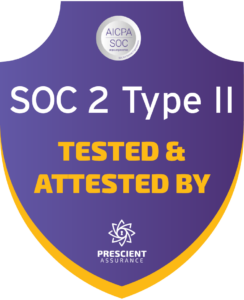Why Insurance Agent Productivity Is the Key to Sustainable Agency Growth

The success of any insurance agency hinges on one critical factor: how to increase insurance agent productivity. When your team operates at peak efficiency, everything else falls into place—resulting in higher revenue, better client relationships, and smoother operations. The question isn’t whether you need more productive agents; it’s about implementing the right strategies to get there.
Here’s something that might surprise you: agencies that invest in structured approaches see their new hires reach full productivity 95% faster than those that don’t. That’s not just a nice-to-have improvement—it’s a game-changer for your bottom line.
Why Agent Productivity Makes or Breaks Your Agency

Think about your top-performing agents. They’re not just closing more deals—they’re doing it with less hand-holding, creating stronger client relationships, and frankly, making your job as an owner much easier. When agents hit their stride, you can grow your client base without proportionally increasing your headaches.
The reality is that most agencies struggle with the same productivity killers: inconsistent training, drawn-out onboarding processes, and agents being overwhelmed by paperwork instead of focusing on what they do best—selling. These bottlenecks don’t just slow down individual performance; they cap your entire agency’s growth potential.
Employee productivity isn’t about working harder—it’s about working smarter. The strategies below will help you build systems that naturally drive better performance across your team.
1. Build a Training Foundation That Actually Works

Let’s be honest: most training programs are a mixed bag. Some agents pick things up quickly, others struggle for months, and you’re left wondering why there’s such a wide performance gap. The solution? Standardization that doesn’t sacrifice quality.
Modern online tools for insurance agents have completely transformed how we approach training. Instead of hoping everyone retains information from a single presentation, you can create video-based modules that agents can revisit whenever they need a refresher. This approach isn’t just more convenient—it’s more effective.
The beauty of systematic training programs lies in their predictability. When every agent receives the same high-quality foundation, you eliminate the guesswork and reduce that typical 6-12 month learning curve significantly.
To train insurance agents effectively, you need consistency paired with flexibility. Digital delivery methods accommodate different learning styles while maintaining quality control across your entire team.
Pro Tip: Use video-based, self-paced modules to provide consistency across locations and trainers. This saves time and improves information retention for new hires.
2. Master the Art of Onboarding

Structured onboarding has a greater impact on employee success than any other factor during those crucial first 90 days. Get it right, and your new agents will hit the ground running. Get it wrong, and you’ll spend months trying to course-correct.
Real onboarding goes way beyond filling out forms and watching orientation videos. It’s about creating connections, setting clear expectations, and giving new team members the confidence they need to succeed. Mobile apps can streamline much of this process while creating a personalized experience that makes new hires feel valued from day one.
The best onboarding programs incorporate mentorship components, regular check-ins, and clear milestones that enable new agents to track their progress effectively. When people know what success looks like and how to measure it, they’re much more likely to achieve it.
Pro Tip: Automate onboarding checklists using a shared portal to confirm no steps are missed—and reduce admin time for managers and new hires alike.
3. Cut the Administrative Clutter

Commercial general liability and property insurance TPAs handle complex claims that require specialized investigation capabilities and legal expertise. These TPAs coordinate with defense counsel, manage litigation expenses, and implement settlement strategies that protect insurer interests while resolving claims efficiently.
Property insurance TPAs often maintain networks of contractors, adjusters, and restoration specialists who can respond quickly to large losses. They coordinate emergency services, estimate repair costs, and manage vendor partners throughout the restoration process. This specialization generates significant value for insurance companies that handle commercial property exposures.
Liability TPAs provide specialized expertise in areas such as product liability, professional liability, and environmental exposures. They maintain relationships with expert witnesses, specialized defense counsel, and technical consultants who support complex liability claims. This network of specialists enables more effective claims resolution than generalized claims departments typically achieve.
Your agents didn’t get into the insurance industry to spend their days doing data entry. Yet that’s exactly what happens when administrative tasks pile up. Every minute spent on duplicate data entry or manual scheduling is a minute not spent with clients or prospects.
The worst part? Most of these productivity tools and automation tools can handle repetitive tasks without any human intervention. Your CRM system can communicate with your calendar, which can be integrated with your quoting system. When these systems work together, agents spend less time pushing paper and more time building relationships.
Regular workflow analysis reveals surprising time drains. You might discover that agents are spending hours each week on tasks that could be automated with the right business processes in place.
Pro Tip: Integrate your CRM system, calendar, and quoting system to eliminate duplicate data entry and speed up your agents’ daily workflows.
4. Use Data to Drive Agent Productivity and Development

Insurance Skills Assessments eliminate the guesswork from professional development. Instead of applying generic training across the board, you can identify specific gaps and create targeted improvement plans.
Regular assessments also help you track progress and measure the effectiveness of your training. This data-driven decision-making approach ensures you’re investing your training budget where it will have the biggest impact.
Behavioral analytics from these evaluations reveal patterns you might not notice otherwise. Some agents might excel at phone calls but struggle with follow-up emails. Others might have excellent technical knowledge but need to work on their communication skills.
Pro Tip: Conduct a baseline assessment on day one to identify training needs promptly and tailor the onboarding plan accordingly.
5. Set Goals That Actually Motivate and Boost Agent Productivity

Vague expectations create confusion and frustration. When agents don’t know what success looks like, they can’t prioritize their efforts effectively. Clear, measurable objectives eliminate this ambiguity and provide a roadmap for achievement.
The key is striking a balance between activity-based goals and outcome-based targets. New agents might focus on making a certain number of phone calls per day or completing follow-ups within 24 hours. More experienced team members can focus on achieving revenue targets and improving client retention metrics.
Time blocking helps agents allocate sufficient time to goal-related activities while maintaining work-life balance. When people know exactly what they need to accomplish and when, productivity naturally improves.
Pro Tip: Break large KPIs into weekly micro-metrics (like “quotes per day”) to keep agents motivated and performance trending in the right direction.
6. Create a Culture of Continuous Learning

The insurance industry is constantly evolving, and your agents need to evolve with it. A growth mindset culture encourages team members to stay current with industry trends, improve their skills, and adapt to changing client needs.
Continuous learning doesn’t have to mean lengthy seminars or expensive conferences. Bite-sized modules, lunch-and-learn sessions, and peer mentoring can be incredibly effective. The key is making learning convenient and relevant to daily work.
Professional development should address both technical knowledge and soft skills. Emotional intelligence, active listening, and stress management are just as important as policy details and compliance requirements.
Pro Tip: Set up a monthly “lunch and learn” or internal certification to reward continuous upskilling without overwhelming the team.
7. Keep Your Team Engaged and Motivated

Engaged agents don’t just perform better—they stay longer and deliver superior customer service. Recognition programs, career development opportunities, and wellness programs all contribute to higher engagement levels.
Developing communication skills enhances both internal collaboration and external client relationships. When agents feel confident in their abilities and supported by their team, they’re more likely to go above and beyond for clients.
Regular check-ins between managers and agents provide opportunities for feedback, recognition, and support. These conversations help identify potential issues early and maintain strong working relationships.
Pro Tip: Implement a peer recognition system that allows agents to acknowledge each other’s successes in team meetings or through digital channels, boosting morale.
8. Measure What Matters and Adjust Accordingly for Agent Productivity

Performance monitoring provides the insights you need to identify what works and what doesn’t. Key performance indicators, such as training completion rates, time to first sale, and client satisfaction scores, reveal trends that guide decision-making.
Advanced analytics can uncover correlations between activities and outcomes. You may find that agents who complete specific training modules have higher conversion rates, or that certain lead generation strategies yield better-qualified leads.
Regular team meetings and one-on-one sessions provide opportunities to review data and adjust strategies. Client feedback, as gathered through surveys and testimonials, provides additional insights into service quality and areas for improvement.
Pro Tip: Use automated reporting dashboards to track training completion, performance trends, and productivity gains at a glance.
Your Next Steps Toward Better Agent Productivity

Insurance agent productivity isn’t about luck or natural talent—it’s about creating systems that help your team succeed. The strategies above provide a roadmap for building a more efficient, profitable agency that can scale without sacrificing quality.
Implementation works best when you start small and build momentum. Choose one or two strategies that address your biggest challenges, measure results, and expand from there. Content marketing, social selling, and email marketing software can supplement traditional sales approaches while automation tools handle routine tasks.
Cold calling effectiveness improves when agents have better training and clearer processes. Proposal creation becomes more efficient with standardized templates and automated workflows. Multi-channel communication helps agents stay connected with prospects and clients through their preferred channels.
Success comes down to taking action and measuring results. Regular check-ins, goal setting, and process optimization create a foundation for sustained improvement. Insurance carriers provide ongoing support for product knowledge and market research, while agency management software handles administrative tasks and repetitive tasks.
The question of how to increase insurance agent productivity ultimately depends on your willingness to invest in systems and processes that support your team’s success. Book a demo to see how Total CSR’s comprehensive training and assessment platform can help you achieve measurable improvements in agent performance and business growth.
Total CSR provides far more than designations. The platform includes:
- Thorough training for new hires
- Focused skill-building for account managers
- Advanced education tailored to agency requirements, covering business auto policy and commercial property
- Specialized courses on ethics, customer service, and risk management
Ready to see what Total CSR can do for your agency and its ethical responsibility? Book a Customized Demo today to discover how Total CSR can help your agency thrive in the insurance industry.


